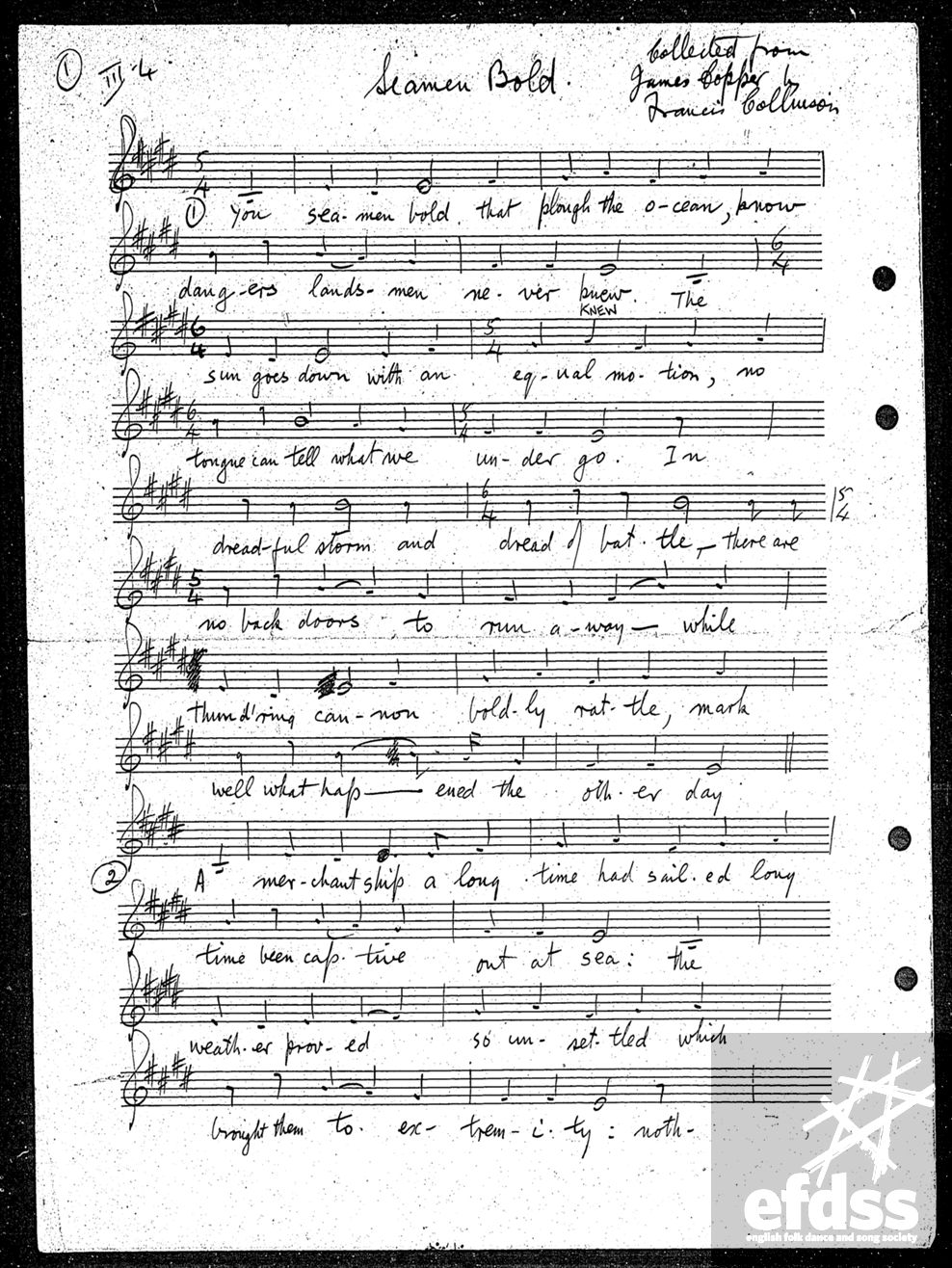There’s a very well-known version of this song – usually known as ‘The Ship in Distress’ – set to a suitably dramatic minor key tune. The fine tune came from a Mr Harwood, of Watersfield near Pulborough, and was one of four versions collected in Sussex by George Butterworth. It’s in the The Penguin Book of English Folk Songs and Martin Carthy recorded it, with a typically atmospheric fiddle accompaniment from Dave Swarbrick, on the LP But Two Came By. I was familiar with both of those sources, I think, by my late teens. So when I came across another Sussex version (the song never seems to have been collected in any other county) in Bob Copper’s book A Song for Every Season, I was intrigued by the fact that this macabre tale was set to quite a jaunty major key tune – it’s pretty much exactly the same as the “normal” tune, but transposed from minor to major. Since noone else seemed to be singing this version I determined to learn it myself. And, some 40 years later, it’s finally happened.
You can hear Bob Copper singing ‘Seamen Bold’ on the Leader box set, A Song for Every Season (assuming you’re lucky enough to have access to this long deleted classic). He revisited the song in 1998 on the CD Coppersongs 3, which is one of the few Copper Family recordings I don’t seem to have in my collection. More recently, an older recording became available on the Topic 3-CD set Good People, Take Warning – sung by Bob’s father Jim Copper in 1951.
If you’re interested in learning more about songs of cannibalism (or cannibalism narrowly averted) in the tradition, check out Paul Cowdell’s article Cannibal Ballads: Not Just a Question of Taste in the Folk Music Journal Vol. 9, No. 5 (2010).
Seamen Bold



